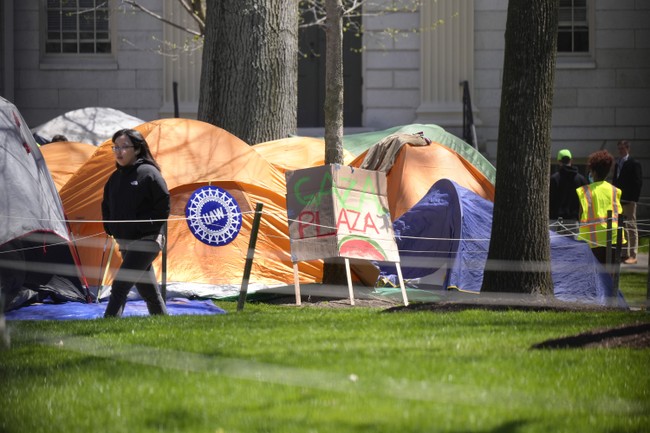Harvard's Standoff with Trump Administration
Explore the significant conflict between Harvard University and the Trump administration over federal funding, antisemitism, and academic freedom amidst stringent government demands.
Published April 15, 2025 - 00:04am

Image recovered from townhall.com
In recent developments, Harvard University finds itself at the center of a heated battle with the Trump administration over accusations of antisemitism on its campus and its refusal to comply with stringent government demands. This standoff has brought into focus the broader issues concerning federal funding and the autonomy of higher education institutions in the United States.
Harvard, one of the most prestigious universities globally, has been under scrutiny by the Trump administration, which threatens to withdraw nearly $9 billion in federal grants. The administration's demands include terminating diversity, equity, and inclusion (DEI) programs and making significant changes to policies perceived to foster antisemitic harassment.
The conflict intensified following antisemitic incidents on campus, particularly after the October 7, 2023 attack by Hamas in the Middle East. The administration's decision to review federal funding to Harvard was a direct response to these incidents. However, Harvard President Alan Garber strongly defended the university's stance, emphasizing its commitment to freedom of thought and inquiry.
Garber's message to the university community underscored the importance of academic freedom, reflecting a long-standing tradition of pursuing truth without governmental interference. He expressed concern over the potential consequences of severing partnerships that have historically fueled groundbreaking innovations in various fields, including medicine and engineering.
On the legal front, Harvard faculty have mounted a lawsuit against the government, asserting that the administration's actions violate the First Amendment, which protects freedom of speech and academic independence. The lawsuit is part of a broader pushback against the federal government's attempt to impose conditions that Harvard officials argue overstep constitutional boundaries.
Meanwhile, critics such as Representative Elise Stefanik have voiced strong opinions, accusing Harvard of failing its students by allegedly fostering an environment that tolerates antisemitism. Stefanik called for federal funding to be cut off until the university takes concrete steps to address these issues.
Harvard's rejection of the administration's demands stands in contrast to other universities, such as Columbia University, which has made concessions to meet government requirements. Harvard's decision underscores a critical moment in the debate over how far the federal government should go in dictating policies within private universities.
The international perspective also plays a role, as universities worldwide watch how this situation unfolds. They are grappling with similar tensions between respecting free speech and addressing hate speech effectively on campuses.
Experts believe that the outcome of this conflict could set a precedent for government-university relations in the U.S., affecting funding, governance, and policy autonomy. Universities are increasingly being challenged to balance their historical commitment to free learning environments with the imperative to protect all students from discrimination and harassment.
As the legal proceedings and public debate continue, the situation at Harvard remains a bellwether for the future of higher education governance in America, promising to influence policy decisions and educational practices for years to come.






